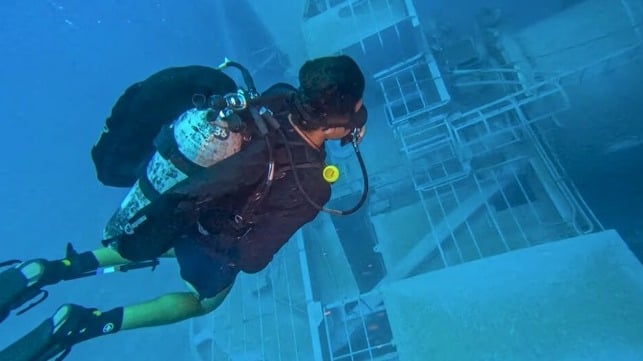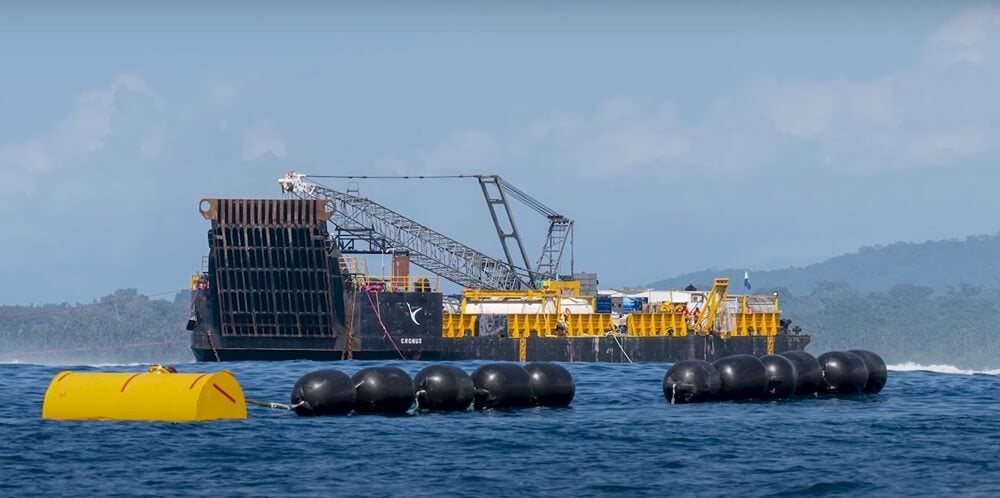New Zealand Does Not Plan to Replace Lost Survey Ship Manawanui

When the survey ship Manawanui went down off the coast of Samoa in October, New Zealand's small navy lost more than a tenth of its fleet. The vessel will not be replaced, New Zealand's defense minister said early this week, and her missions will be picked up by the patrol boat HMNZS Otago - a much smaller vessel lacking Manawanui's working deck and 100-tonne crane.
It is as yet unclear whether Manawanui's wreck will be raised, but refueling operations to reduce the risk of pollution are under way. The salvor is using a deck barge carrying tanktainers to store extracted petroleum from the ship, and it recently made its first planned trip back to port to drop off the first set of full tanks. The port backloaded empties onto the barge, and the salvors towed it back out towards the site to continue work. The barge's spread-moor system will remain in place between trips to and from the port, with its mooring cables temporarily hung on buoys so that they can be picked up later.

Salvage barge on site off Upolu (NZDF)

that matters most
Get the latest maritime news delivered to your inbox daily.
Despite some early delays due to weather, the "complex and technical" defueling project is proceeding well, NZDF on-scene commander Commodore Andrew Brown said in a statement. He noted that the government of Samoa has reduced the scope of its precautionary restrictions on fishing in areas around the wreck site, which were implemented due to the risk of pollution from Manawanui's diesel fuel. Brown said that with New Zealand's help with water quality testing, further reductions are expected soon. An exclusion area of about 2,000 meters around the wreck will remain in effect.
The cost of cleanup will be steep, but part of it will be covered by the New Zealand Defence Force's insurers, minister of defense Judith Collins told 1News. "Obviously Defence Force is supplying a lot of staff, a lot of equipment, all these things happening, but a lot of that is working with insurers," she said, declining to put a figure on the exact costs.
